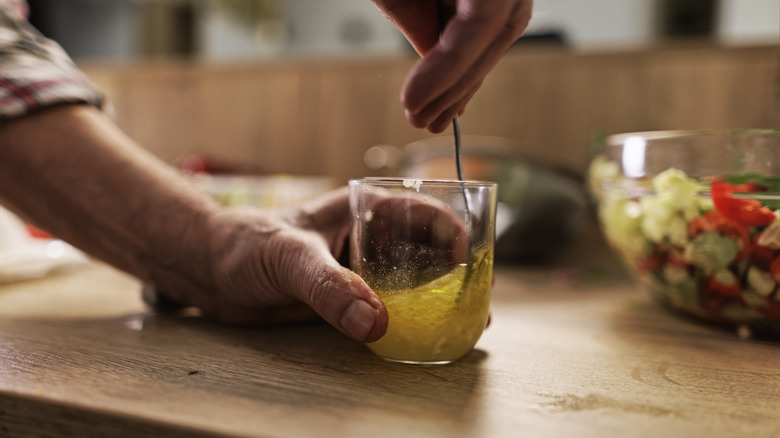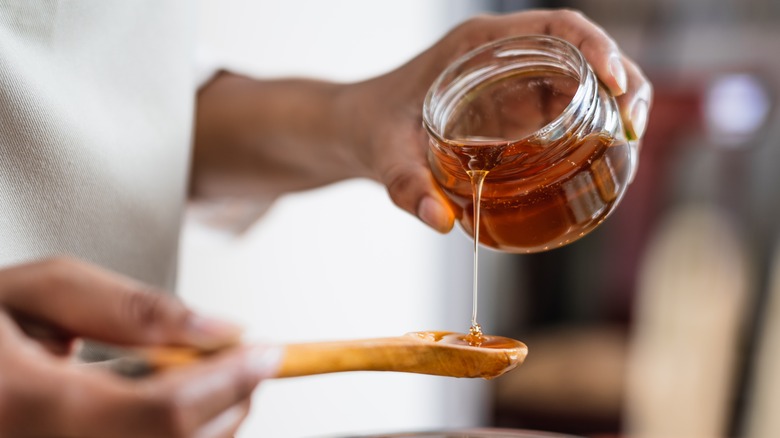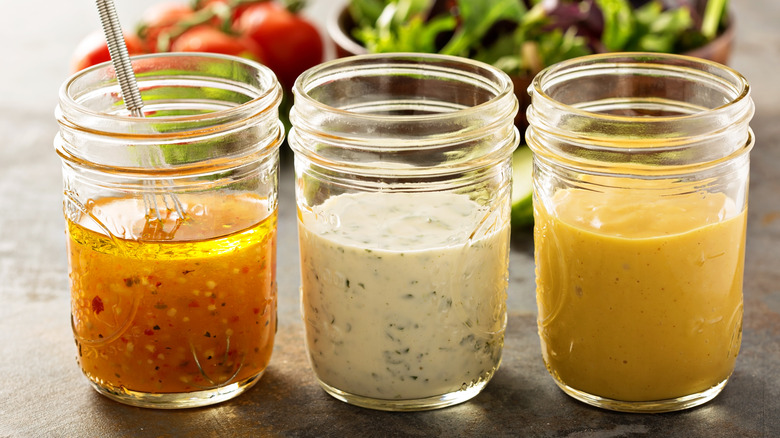The Ingredient Mistake You're Making With Homemade Salad Dressing
So you've decided to skip the bottled dressing and make a salad dressing all on your own. Now you get to decide the exact texture and tantalizing flavors to amp up your greens. Luckily, making a homemade salad dressing is quite simple. All it takes is a base of oil and vinegar, and you can customize from there. However, it's easy to get carried away and add too much or too little of various ingredients, but the one that's hard to adjust once you've added too much is sugar.
Adding too much sugar is one of the most common homemade salad dressing mistakes. Bottled dressings can contain hidden ingredients with higher amounts of sugar than expected. Since creating your own salad dressing ensures you know exactly what you're consuming, you don't want to end up with a dressing that's just as sugary as the store-bought version. Luckily, there are ways you can stay in control of your dressing and avoid this mistake.
How to avoid adding too much sugar to salad dressing
Just like your salad dressing to greens ratio should be just right, so too should the ratio of sugar to oil and vinegar. When it comes to making homemade salad dressing (and with cooking in general), less is more. Mix up your dressing in a bowl or jar so you can taste it along the way. Start small with just a pinch of sugar, and taste test to see if it needs any more. A pinch may not look like a lot, but you'd be surprised how little sugar can easily balance out your dressing.
Another great option is to look for an alternative sweet ingredient. Honey, agave nectar, or even maple syrup are great liquid sugar options. They also have their own unique flavors that can elevate your homemade dressings, keeping eaters asking what the secret ingredient is. Or, you can toss in a unique addition like canned pumpkin to really keep your guests guessing. The natural sweetness could surprise you — and you may not need any extra sugar at all.
How to fix a too-sweet salad dressing
You don't want to pack on the sugar in your dressing, but too much of other salad dressing ingredients can be a detriment as well. Acidity is an important quality in dressings, bringing a much-needed tang that takes a dressing from one-note and oily to smacking good. The vinegar helps to achieve this balance, but a fresh squeeze of lemon juice is a popular choice to brighten up any dressing.
Luckily, if you do end up with a too-sugary dressing on your hands, remedy it with more of all the other ingredients to help counteract the extreme sweetness. Specifically, you can include something savory, which is especially suited to tone down sweetness. You could simply sprinkle in some salt, or reach for a more dynamic ingredient like soy sauce. Even a creamy option like peanut butter or tahini can make a dressing rich while also thickening it up. Gradually add sugar to your homemade dressing to ensure you have a balanced, not-too-sweet complement for your salad.


